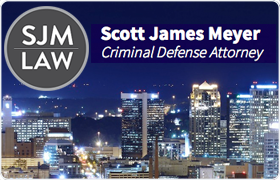Adamsville DUI-DWI Lawyer, Alabama
Sponsored Law Firm
-
 x
x

Click For More Info:
-
Law Office of Scott Meyer
1211 28th Street South Birmingham, AL 35205 » view mapJefferson County Criminal Lawyer Success with Scott
Scott James Meyer provides first-class criminal defense representation in Birmingham and the State of Alabama for drug offenses and other felonies and misdemeanors.
800-697-0641  Scott Meyer Birmingham, AL
Scott Meyer Birmingham, ALAttorney At Law - Alabama, 2010
Birmingham School of Law, J.D. - 2009
 Facebook
FacebookFor Additional Information About The Law Office of Scott Meyer
 Contact UsEmail or Call 24/7
Contact UsEmail or Call 24/7Call Today For Your Initial Free Consultation.
Charles Miller
✓ VERIFIEDCharles "Trapper" Miller has been practicing since 2011representing defendants in various criminal cases, helping businesses protect themselves, and h... (more)
Derek Simms
✓ VERIFIEDSimms & Associates is widely regarded as one of the top personal injury law firms in the State of Alabama. The firm was founded in 1999 by lead attorn... (more)
FREE CONSULTATION
CONTACTFREE CONSULTATION
CONTACT

 Scott Meyer Birmingham, AL
Scott Meyer Birmingham, AL Facebook
Facebook Contact UsEmail or Call 24/7
Contact UsEmail or Call 24/7


